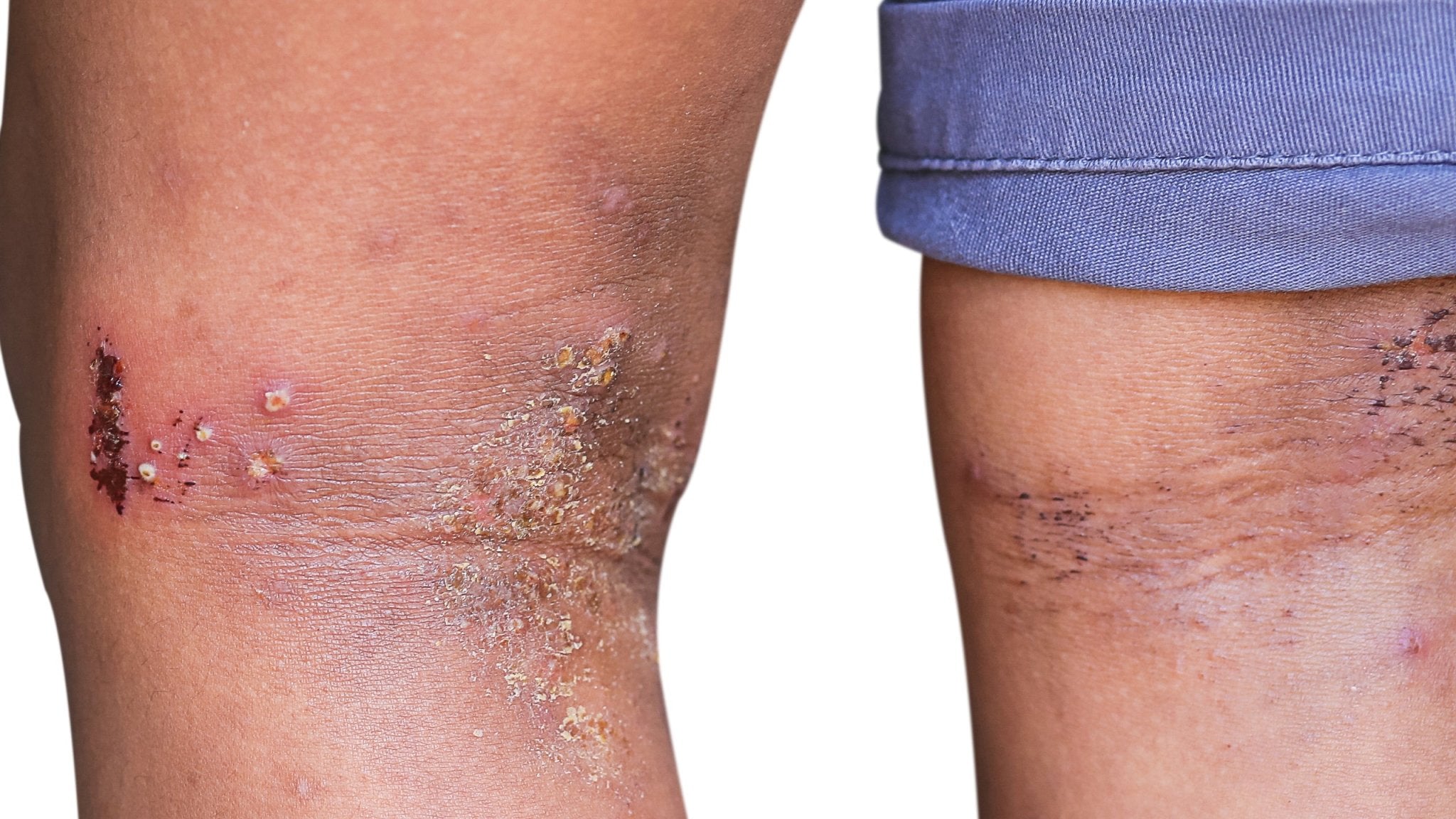If you’ve suddenly started experiencing the itchy, inflamed skin associated with eczema, you’re probably wondering how you got it. You may even be asking yourself, “Does eczema spread from person to person?”
And if you have eczema, you’re probably no stranger to fielding unwelcome or uncomfortable questions from others about whether your skin condition is contagious.
The answer is a resounding “no.” Eczema is not contagious. You can’t “catch” eczema from another person, whether they have an active flare-up or not.
If eczema isn’t contagious, how do you get eczema?
Now that you know you didn’t catch eczema from the person next to you, and that you’re not going to spread it to others, let’s dive into what can cause eczema.
Understanding what causes eczema
The exact cause of eczema remains unknown. However, researchers know there are several main factors in the development of eczema. These include:
Genetics: Eczema tends to run in families. If one of your parents has eczema, you have a 1 in 4 chance of developing eczema. When both parents or a sibling have eczema, that increases your chances to 1 in 2.
Bacterial overgrowth: Most people with eczema have an imbalance of bacteria on their skin microbiome. Trillions of tiny microorganisms live on the surface of your skin, including both good and bad bacteria. When bad bacteria begin to outweigh the good, skin conditions like eczema can appear.
Environmental factors: Instances of eczema are higher in industrialized countries. Urbanization and exposure to air pollution can increase the risk of developing eczema.
The exact cause of your eczema may also vary based on the type of eczema you’re experiencing. For example, with allergic contact dermatitis, a rash appears after you've come into contact with an irritant or allergen.
Is eczema curable?
Eczema isn’t curable, but it can be managed. Identifying your triggers, caring for your skin, and developing a treatment plan in partnership with your doctor can help you keep your skin under control.
Eczema and secondary infections that can spread
While eczema itself isn’t contagious, open skin can get infected. These secondary infections from bacteria, viruses, or fungi that can be contagious.
Signs your eczema may be infected include:
- Clear or yellow discharge
- Crusts on top of eczema patches
- Redness around the rash
- Eczema patches that won’t heath
- Skin that feels hot to touch
- Skin with red streaks
- Pain
- Worsened itch
- Blistering or boils
If you have any of these symptoms, contact your healthcare provider right away.
Why do I suddenly have eczema?
If you’re experiencing eczema suddenly, without any prior experience with the skin condition, you may start to wonder if you caught eczema from someone else. Since eczema isn’t contagious, rest assured that’s not why you’ve just developed this itchy skin. Sudden eczema in adults can occur for many reasons — most of which are hard to pinpoint. As you get older, the skin does tend to dry out. Dry skin increases the risk of developing eczema and may be part of the explanation for sudden eczema as an adult.
Why is my eczema spreading all of a sudden?
If your pre-existing eczema seems to be spreading all of a sudden, you are likely experiencing a flare-up. Visit your primary care provider or dermatologist to discuss what’s going on with your skin and determine a treatment plan.
What causes eczema to flare up? Eczema has multiple possible triggers that vary from person to person. Triggers can include changing weather, certain foods, including food allergies, pollen, dust or mold, stress, and dyes, fragrances, or other chemicals in household and skin care products.
If your eczema is worsening, visit a board-certified dermatologist or your primary healthcare provider to help pinpoint your triggers and come up with a personalized treatment plan.
Manage Eczema Symptoms with Gladskin Eczema Cream
Working to get your skin under control? Consider trying Gladskin Eczema Cream with Micreobalance®. It restores bacterial balance to the skin microbiome and is clinically proven to reduce eczema symptoms. Plus it’s minimally formulated and steroid-free. Learn more.
